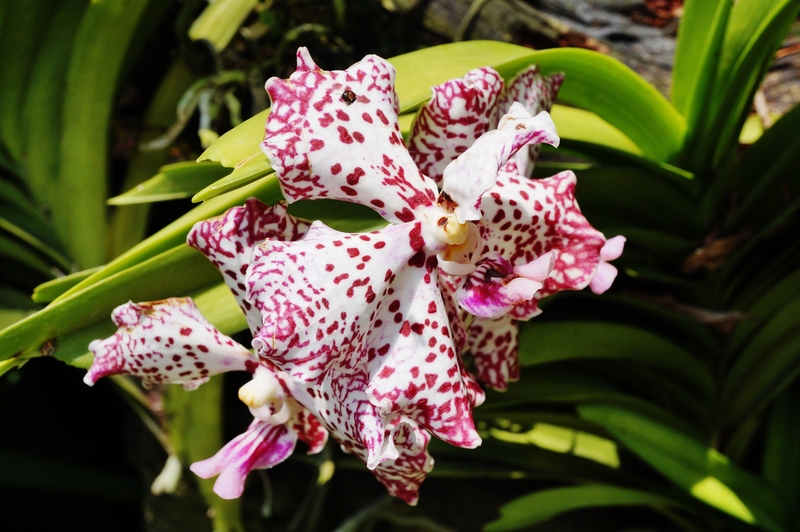Making Your Garden a Fun and Safe Playground for Children
Posted on 28/08/2025
Transforming Your Garden into a Safe and Exciting Playground for Kids
Your garden has the potential to become the perfect playground for children. With a bit of creativity, planning, and attention to safety, you can make your outdoor space a place where kids can not only play, but thrive. In this comprehensive guide, you'll learn how to create a fun and secure garden playground that promotes physical activity, sparks creativity, and gives you peace of mind.

Why Turn Your Garden into a Children's Playground?
Outdoor play is an essential part of a child's development. Having a child-friendly backyard offers multiple advantages:
- Promotes physical health: Encourages exercise and motor skill development.
- Boosts imagination and creativity: Open spaces inspire imaginative play and exploration.
- Social opportunities: Children can interact, share, and play with siblings or friends.
- Convenience: Supervise your children as they play safely at home.
- Fosters a love for nature and the outdoors.
Important Considerations Before Designing a Safe Garden Playground
Before you begin transforming your garden into a safe playground for children, consider these crucial factors:
- Space and layout: Assess your available garden space. Plan areas for play, rest, and supervision.
- Sun exposure: Ensure some shaded spots to protect kids from harmful UV rays.
- Supervision: Sightlines from windows or patios for easy monitoring.
- Age appropriateness: Choose equipment suitable for your child's age and ability.
- Budget: Calculate costs for equipment, landscaping, and safety features, and prioritize accordingly.
Once you've addressed these preliminary factors, you're ready to create the ultimate child-friendly garden play area.
Prioritizing Safety in Your Garden Playground
1. Secure Boundaries and Gates
- Install sturdy fencing to prevent children from wandering out of the garden.
- Ensure gates are self-closing and locked when unsupervised.
- Regularly check for gaps, loose boards, or sharp edges.
2. Safe Surfacing for Play Areas
- Grass is soft and natural, but can become muddy or uneven.
- Rubber mulch or play bark provides excellent shock absorption under play equipment.
- Artificial turf creates a flat, clean surface, reducing the risk of slips and falls.
- Paving stones should be non-slip; avoid loose gravel for younger children.
3. Age-Appropriate Play Equipment
- Choose swings, slides, or climbing frames that match your children's age and abilities.
- Always anchor equipment firmly to the ground.
- Check for splinters, rusty parts, or protruding screws regularly.
- For younger kids, consider low-height, enclosed play structures.
4. Remove and Avoid Garden Hazards
- Store gardening tools and chemicals in a locked shed out of children's reach.
- Remove toxic plants, thorny bushes, or stinging nettles from play areas.
- Make sure any water feature or pond is fenced off or covered securely.
- Check for overhanging branches or loose bricks that could fall.
5. Provide Adequate Supervision
- Position play areas within view of the house.
- Use baby monitors or cameras for additional peace of mind if necessary.
- Establish rules for safe play and regularly remind children.
Essentials for a Fun Garden Playground
With safety precautions in place, focus on making your backyard play area fun and stimulating for children of all ages.
1. Classic Playground Equipment
- Swings: timeless and exhilarating, available in various sizes and materials.
- Slides: Plastic slides are safer and less likely to heat up in the sun.
- Climbing frames and jungle gyms: Encourage strength, balance, and coordination.
- Monkey bars, seesaws, and merry-go-rounds (space permitting).
- Install equipment with ample clearance and soft surface underneath.
2. Creative and Imaginative Play Zones
- Sand pits: For digging, building, and even hidden treasure hunts.
- Water play tables: Perfect for sensory development, especially in summer.
- Playhouses or tents: Create hideaways, forts, or mini homes to encourage role play.
3. Nature and Exploration Areas
- Design bug hotels or encourage wildlife with bird feeders and butterfly plants.
- Build a simple obstacle course with stepping stones, balance beams, or tunnels.
- Reserve a mini garden patch for children to plant and care for their own flowers or veggies.
4. Relaxation and Shaded Spaces
- Set up a hammock, bean bags, or picnic blankets in a shady spot.
- Use a pergola, umbrella, or natural shade from trees to protect from sun.
- Include seating for both children and adults to supervise and spend time together outdoors.
Garden Play for All Ages: Ideas and Activities
Every age group benefits from tailored playground experiences in the garden. Here's how to engage toddlers, preschoolers, and older children:
For Toddlers
- Low, stable slides and soft play mats.
- Mess-free water tables and splash pads for sensory play.
- Large, easy-to-grip toys and ride-ons.
- Secure fencing and shaded areas are a must.
For Preschoolers
- Mini climbing frames, swings, and sandboxes.
- Mini-gardening tools for digging and helping out.
- Giant construction blocks or outdoor musical instruments.
For Older Children
- More complex climbing walls or adventure courses.
- Space for ball games or team sports.
- Outdoor chalkboards or art stations.
- Treehouses, zip lines (with professional install), or bike/Scooter paths.
Top Tips for Maintaining a Safe and Fun Outdoor Play Environment
Creating your safe garden playground is just the beginning. Regular maintenance and routines ensure ongoing safety and enjoyment for the whole family:
- Inspect equipment weekly: Tighten bolts, check for loose steps, and clean surfaces.
- Rake play bark or rubber mulch to maintain cushion and even depth.
- Sweep up leaves and debris to prevent slips and keep the area tidy.
- Remove any hazardous plants that may have grown back or been introduced.
- Ensure gates and fencing remain secure to keep kids in and unwanted visitors out.
Eco-Friendly and Sustainable Playground Solutions
Sustainability and safety can go hand-in-hand when designing your backyard playground:
- Use natural wood treated with non-toxic stains and finishes.
- Recycled and upcycled materials: Build play structures from old pallets or tires.
- Plant native and pollinator-friendly flowers for a healthy habitat.
- Collect rainwater in barrels for garden use and teaching children about conservation.
- Opt for solar-powered garden lights to illuminate play areas after dark.
Encouraging Independent Play and Supervised Group Activities
Balance independent outdoor play with structured family activities:
- Organize nature scavenger hunts or garden Olympics for family fun.
- Encourage group games like tag, hide-and-seek, or obstacle courses.
- Designate quiet corners for solo reading or drawing outdoors.
A well-laid-out garden can help children learn to assess risks and solve problems while knowing their limits.

Key Features to Avoid in Your Kids' Outdoor Playground
For long-term safety in your children's garden playground, avoid the following:
- Ponds or open water (unless securely covered or fenced).
- Exposed concrete or sharp-edged paving.
- Overly tall or complex equipment for young children.
- Plants with berries, thorns, or severe allergies.
- Access to dogs, cats, or other animals in the play zone.
Conclusion: A Safe, Creative, and Memorable Play Space at Home
A thoughtfully designed garden playground for children can offer endless hours of fun, learning, and adventure--while keeping children safe and parents reassured. By combining imaginative features, proper safety measures, and regular checks, your garden will become a favourite destination for your little ones. Whether you have a sprawling lawn or a compact patio, there are endless ways to make your garden a safe and fun playground for children. Invest the time to plan, adapt as your kids grow, and cherish the laughter and memories made just outside your back door!
Start Today: Transform Your Outdoor Space into a Safe Haven of Fun
- Assess your current garden layout and any potential hazards.
- Choose the right combination of safe surfaces and play equipment.
- Involve your children in the planning for extra enthusiasm and ideas.
- Commit to regular inspections and upgrades as needed.
With care, creativity, and safety in mind, your garden will soon become a magical, adventurous, and secure playground for the children you love!
Latest Posts
Solutions for Soothing the Winds in Your Garden Sanctuary
From Lawn to Lounge: Designing Amazing Garden Seating Spaces
Nature's Playground: Building a Child-Friendly Garden Haven

